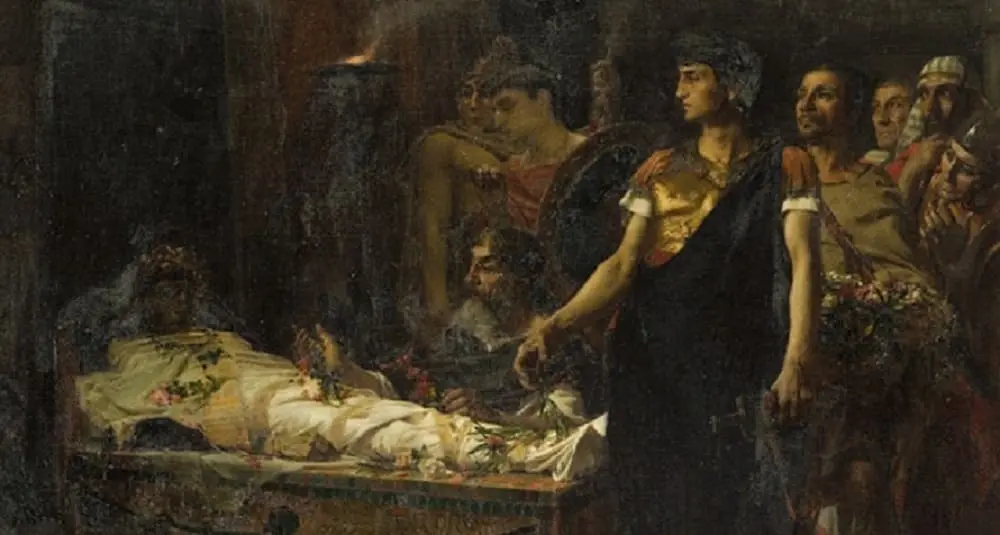How did Alexander the Great die?
Last Updated:
Alexander III of Macedonia, known as Alexander the Great, died in Babylon in June 323 BC, aged 32. His sudden death has given rise to much speculation and theorizing over the centuries, without a definitive consensus having been reached.
After a decade of conquests that took him from Greece to India, Alexander had settled in Babylon, planning new military campaigns. In May 323 BC, while preparing an expedition to Arabia, he took part in a series of banquets and sacrifices. Shortly afterwards, he was seized by an intense fever that lasted several days, accompanied by increasing weakness. Despite his condition, he continued to manage his affairs until he lost the ability to speak. He finally died on June 10 or 11, 323 BC.
Several theories have been put forward to explain Alexander’s premature death.
Some contemporaries and later historians suggested that Alexander had been poisoned, perhaps by relatives or political rivals. Figures such as Antipater, regent of Macedonia, and his sons, Cassander and Iollas, were implicated in these accounts. However, the lack of concrete evidence and the progressive nature of the symptoms make this hypothesis less likely.
The swampy region of Babylon was conducive to the proliferation of mosquitoes responsible for malaria. The symptoms described, such as persistent fever, are compatible with this disease. Another possibility is an infection with typhoid fever, common in the sanitary conditions of the time. Symptoms include high fever, abdominal pain and general weakness.
Some modern researchers suggest that Alexander’s drinking habits, combined with a sumptuous feast, may have triggered acute pancreatitis, leading to his death.
A recent theory proposes that Alexander suffered from an autoimmune disease causing progressive paralysis. This would explain the prolonged duration of his illness and the fact that he was conscious but unable to move or speak before his death.
Alexander’s death without a clear successor led to a rapid fragmentation of his empire. His generals, known as the Diadochi, clashed for control of territories, leading to protracted conflicts and the division of the empire into several Hellenistic kingdoms.
The death of Alexander the Great remains a subject of debate among historians and scholars. Although hypotheses include poisoning, infectious diseases and specific medical conditions, no definitive proof has been established. Historical accounts, often influenced by political or cultural bias, add to the complexity of determining the exact cause of his demise. Nevertheless, the impact of his death on the course of history is undeniable, marking the end of an era of conquest and the beginning of major transformations in the ancient world.
history

How did Alexander the Great die?
Answer
Alexander the Great died in Babylon in 323 BC, probably as a result of a febrile illness.